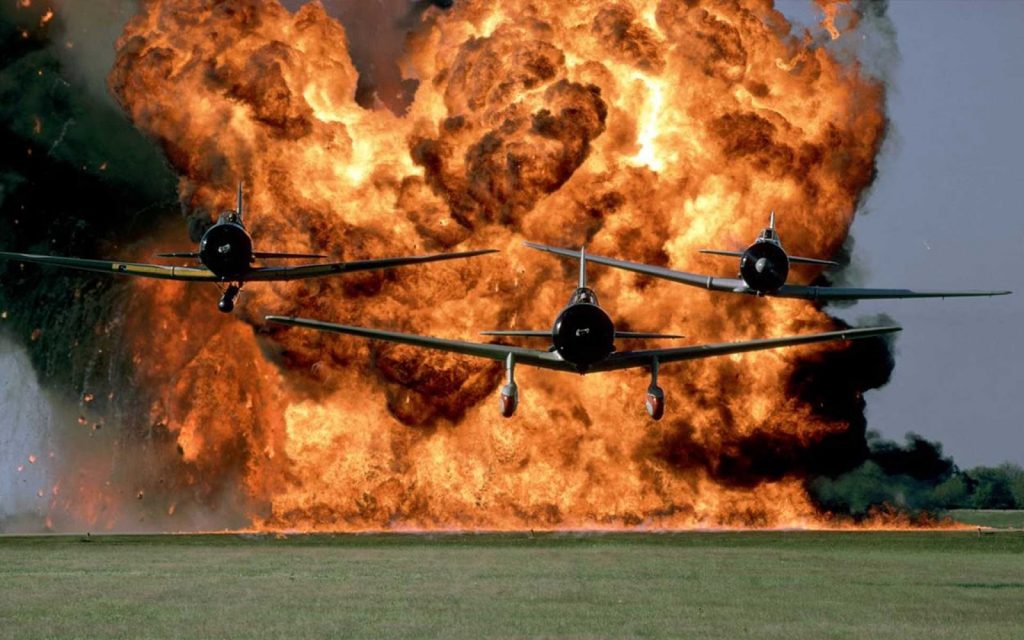Tora! Tora! Tora! (1970)

Tora! Tora! Tora! is a $25 million budgeted (big money, for its time) collaborative effort, years in the making, between the U.S. and Japan film-making industries to craft an accurate dramatic telling of the events leading up to the Japanese sneak air attack on Pearl Harbor in Hawaii on December 7, 1941. Unlike many war epics of the era, this film was cast without a bevy of box office stars, filling the cast with veteran character actors that didn’t get in the way of the story. None of the actors are on the screen for as much at 15% of the film. The story itself is workmanlike, set up more for how decisions would get made than for juicy scenes of poignancy and grand drama, so those looking for powerhouse performances and stellar in-fighting among top brass should look elsewhere.
Much of the proceeding deal with the exchange of memos, phone calls and other forms of communication and how the various recipients of these missives interpreted them. On the Japanese side, internal strife existed about whether or not the attack would be a wise move. On the American side, news of imminent attack were either treated with urgency or indifference. Many mistakes were made along the way on both sides, the American ones most evident initially, and the seeds of the Japanese demise further down the road. It takes quite some time before the film displays any action, and while the initial departure and flight is repetitive, the actual scenes of the bombing are impressively mounted, even if the film mostly eschews the real casualties and tragedy of the events. While much of it is realistic, the shots of pilots in flight have an obvious back-screen effect.
Tora! Tora! Tora! did better overseas, particularly in Japan, than in the United States, and for many years it had been held as a commercial and critical misfire. As far as war flicks go, it is interesting history, but often the delivery of Richard Fleischer’s (Conan the Destroyer, Soylent Green) film seems too slavish to the various chains of non-action events that would lend better to a book than to a major motion picture. Akira Kurosawa had been attached early on, though conflicts would drive him away, which is a shame, as the one thing the film needs a bit more of is an overall vision for the work. Despite some detractions, it has gained its own audience among WWII buffs and lovers of historical war epics, so if you’re of this ilk, it’s definitely worth a look for a no-nonsense approach to one of the most pivotal events in world history.
Qwipster’s rating: A-
MPAA rated: G, suitable for all audiences (probably PG today for violence and some slurs)
Running time: 144 min. (Japanese version runs 159 min.)
Cast: Martin Balsam, So Yamamura, Joseph Cotten, Tatsuya Mihashi, E.G. Marshall, James Whitmore, Takahiro Tamura, Eijiro Tono, Jason Robards, Wesley Addy
Director: Richard Fleischer, Hideo Oguni, Toshio Masuda
Screenplay: Larry Forrester, Hideo Oguni, Ryuzo Kikushima (based on the book by Gordon W. Prange and “The Broken Seal”, by Ladisla Farago)
